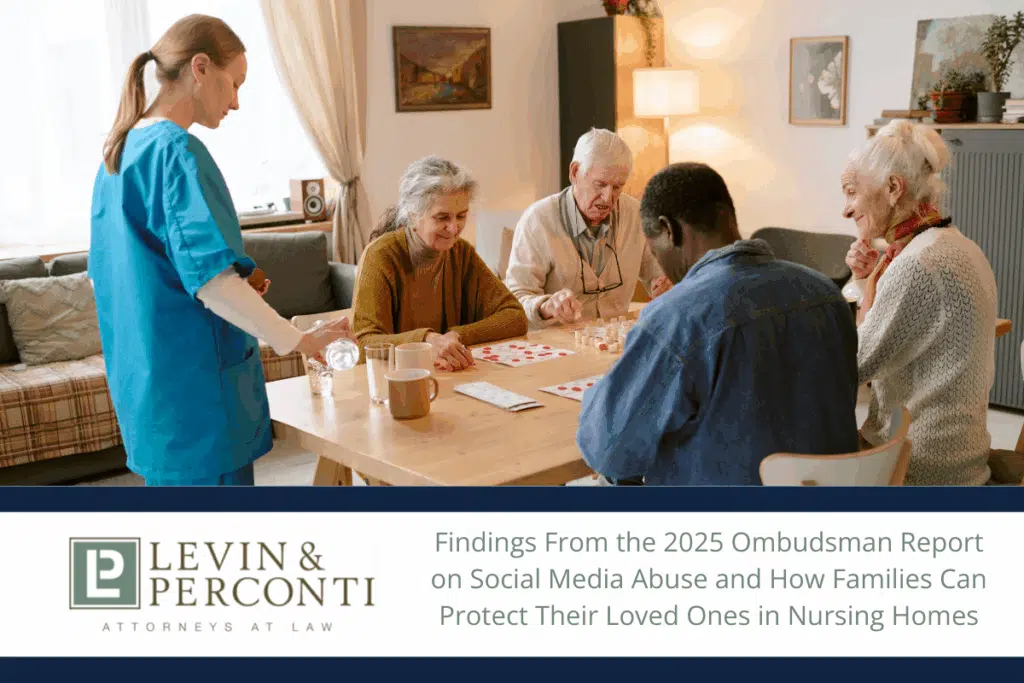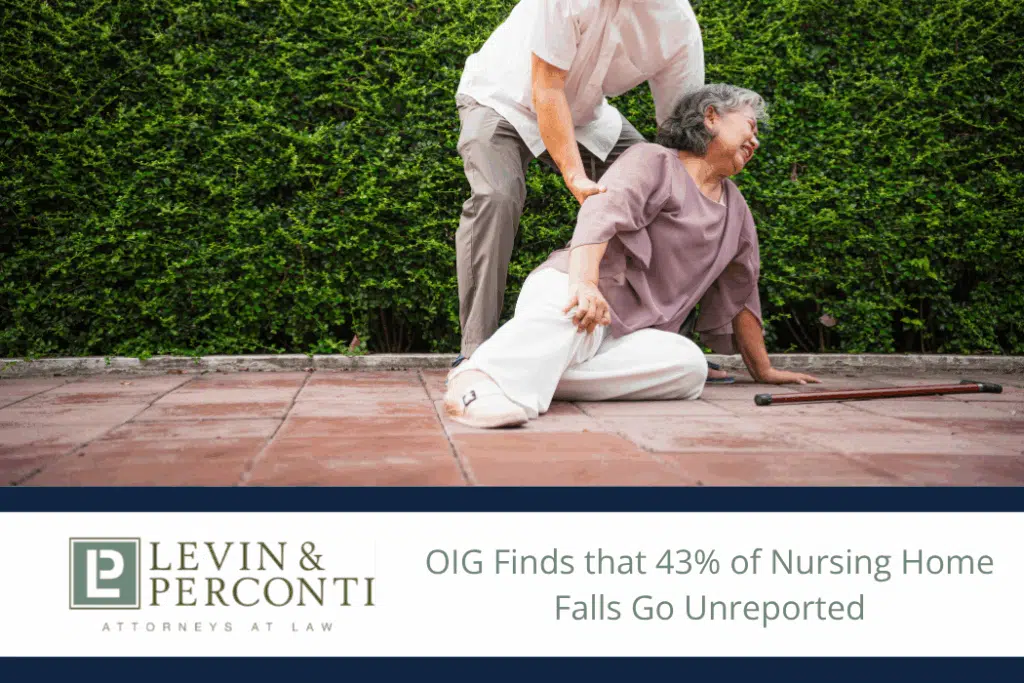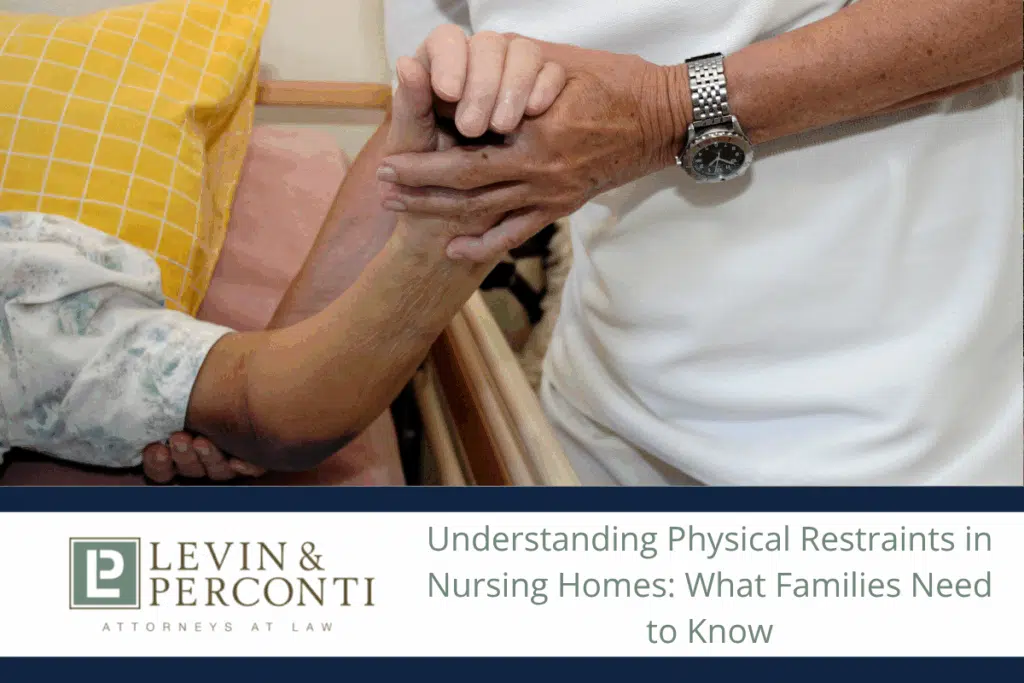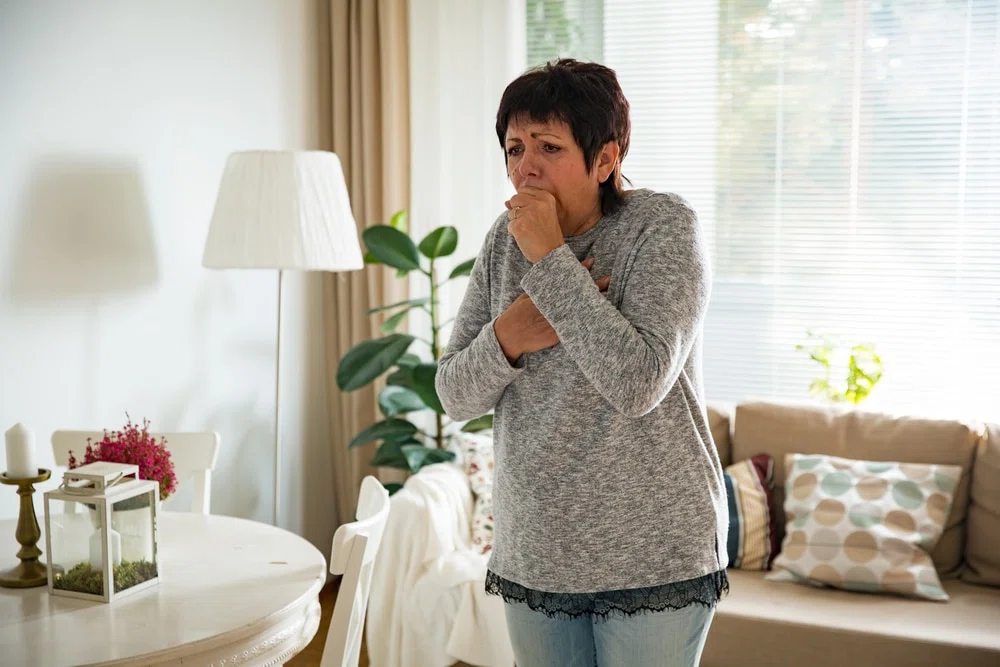
Read Bio
Since 1976, Steve Levin has been dedicated to helping people injured by others’ negligence. He is one of the first attorneys in the U.S. to prosecute nursing homes for abuse and negligence. He’s also helped write new legislation that governs the operation of nursing homes, including the Illinois Nursing Home Care Act. Moreover, Levin & Perconti has obtained the top three jury verdicts in nursing home negligence cases in Illinois.
Read Bio
Since 1976, Steve Levin has been dedicated to helping people injured by others’ negligence. He is one of the first attorneys in the U.S. to prosecute nursing homes for abuse and negligence. He’s also helped write new legislation that governs the operation of nursing homes, including the Illinois Nursing Home Care Act. Moreover, Levin & Perconti has obtained the top three jury verdicts in nursing home negligence cases in Illinois.
Identifying Heat-Related Stress and Dehydration Injuries in Nursing Home Populations During the Summer Months
When you help your loved one find a nursing home, you should feel it is a safe place no matter their risk factors for injury and illness. The facility staff members should be trusted to care for your relatives and friends and protect them from harm. However, extreme weather events, including high temperatures, can be particularly tough on a neglected senior population. And unfortunately, it is not uncommon to hear stories of elderly individuals in dire situations who face severe injury or even die due to elevated hot temperatures and poor air-cooling options.
But elder community members most at risk are not always those living alone and without extensive social networks. They could also be those who rely on nursing homes and long-term care to keep them cool and safe. And when those in charge fail, and facilities don’t train staff to notice heat exhaustion or dehydration warning signs, the risk of a heat-related injury is high. As a result, facilities must invest in keeping cooling equipment, and doors, and windows well-maintained, so that the potential for hot rooms with uncomfortable conditions never presents itself in the first place.
The nursing home neglect lawyers at Levin & Perconti often remind families and community members that elder abuse does not always involve direct, physical harm. A heat-related injury can also uncover cases of severe nursing home neglect.
Identifying The Signs of Heat Stroke in Nursing Home Residents
Specifically, vulnerable nursing home residents can negatively react to high-temperature exposures and become especially at risk for heat stroke or heat stress injuries without the appropriate indoor cooling areas. Heat stroke is a serious condition that can cause seizures, fluid retention, brain damage, dehydration, cardiac-related events, and even death. When a nursing home is not prepared to manage residents in the heat, residents will suffer.
To identify any heat-related illness, nursing home staff should watch out for these signs of distress:
- Dizziness
- Weakness
- Falls
- Heavy sweating
- Nausea
- Faintness
- Spots before the eyes
- Ringing in the ears
- Bright red skin
- Complaints of muscle cramps
- Weak or rapid, strong pulse
- Unconsciousness
- Lethargic movements and response
- High body temperatures
Mayo Clinic says our body’s heat combined with environmental heat results in what’s called your core temperature or the body’s internal temperature. According to the medical authority’s website, “Your body needs to regulate the heat gain (and, in cold weather, heat loss) from the environment to maintain a core temperature that’s normal, approximately 98.6 F (37 C).”
Family Members Can Watch Out for Heat Exhaustion and Dehydration During Visits
If you are a family member visiting with a loved one and they begin to show any signs of heat exhaustion, seek immediate medical attention if they become confused or agitated, loses consciousness, or are unable to drink. If the temperatures inside feel too hot for you, it is likely too hot for them as well. Extreme temperatures can also cause heat stroke, a life-threatening condition that requires immediate medical attention to prevent permanent damage to the brain and other vital organs that can result in death.
Never leave your loved one until a doctor has assessed them and you feel confident in their care. For example, if a resident begins to show signs of heat stroke, the staff should act immediately.
- Stop all activity and move the resident to a cool place.
- Remove all clothing.
- Drink cool water if possible.
- Apply cold cloths.
- Give a sponge bath.
- Inform a physician.
- Begin emergency treatment.
- Transport to acute care facility immediately.
The Centers for Disease Control and Prevention (CDC) says heat-related illnesses in nursing home residents are mostly preventable even though adults older than 65 are at a higher risk of heat exhaustion. This is due to their body’s inability to regulate its temperature, which may be reduced by chronic illness, medications, or other factors.
Keeping residents hydrated, and with adequate cooling and air condition supplies, and providing enough staff to care for them will all be necessary steps for facilities to take to prevent a heat-related injury.
The Risk of Dehydration as the Result of Environmental Heat Stressors
Dehydration is the severe lack of liquid intake and can become severe and even deadly. Dehydration complications often go hand-in-hand with heat-related injuries. Many medical complications result from dehydration; some of them include:
- Seizures
- Severe constipation or bowel impaction
- The inability for the body to process medication correctly
- Low blood volume
- Brain swelling
- Delirium
- Heat stroke
- Kidney failure
- Coma
- Death
Proper hydration is necessary for proper body functioning. When intake is too low, it can cause severe medical problems, some of which could be permanent. Therefore, prevention of dehydration should be a part of primary daily care. Nursing homes need to be aware of any potential risk of dehydration and take the steps necessary to prevent it from occurring. Elderly individuals may have a higher risk of dehydration, particularly if they are not closely monitored.
Dehydration in Nursing Homes Can Be a Sign of Nursing Home Negligence and Understaffing
Older adults may have difficulty eating and drinking and often need assistance to achieve proper nutrition and hydration, making dehydration a common occurrence in nursing homes that is also a sign of nursing home negligence. And when a patient becomes overheated, they do require more fluids, making the risk of dehydration worse.
The presence of dehydration could mean a resident has not been adequately supervised daily. Additionally, the person may be unable to communicate their thirst or hunger, and medications may interfere with these cravings. Regardless, the staff must be available and trained to ensure that residents eat and drink as they should. Any problems must be reported to a doctor for a diagnosis. Dehydration can also occur when a resident is not adequately fed, leaving residents to suffer from significant medical harm due to a lack of proper liquids and nutrition.
Nursing Home Operators Can Be Held Responsible for Heat-Related Injuries to Residents
Staff members and owners at long-term care facilities owe a duty to act reasonably concerning their residents. That includes ensuring that the environment in which they live is safe at all times. It also means that proper supervision should be provided to residents to receive the aid they need to avoid heat-related injuries.
Long-term care facilities should evaluate their ability to maintain a reasonably comfortable temperature inside the facility, especially as seasonal temperatures fluctuate and systems or equipment are not used for a significant part of the year. During the summer months, especially in buildings without air conditioning or adequate cooling units, nursing home operators must employ special measures to assure residents’ comfort and safety.
For example, using a guide provided by the Illinois Department of Health, an example of what a nursing home hot-weather plan should include starts with these steps.
- Procedures of monitoring residents for signs and symptoms of heat-related stress;
- Procedures for the relocation of residents to air-conditioned, or cooler areas, of the facility;
- Procedures for transfer of residents to other health care facilities during periods of acute heat stress;
- Procedures to monitor the facility’s physical environment (including temperature, humidity, sun screening, ventilation, etc.); and recognize temperature and humidity values where the hot weather plan must be implemented.
- Procedures for substituting hot-weather menus for regular meals and additional fluids to maintain proper hydration of residents.
Unfortunately, these steps in maintaining temperatures with care are not always provided. This leaves nursing home abuse and neglect lawyers, family members, and senior care advocates frequently cite the civil justice system as one of the critical ways that long-term care facilities are held accountable for their conduct and spurred to make changes to minimize future harm. Therefore, working closely with a lawyer is always advisable and is the best way to protect the rights of your loved one.
How To Request a Free Consultation with a Nursing Home Negligence Attorney at Levin & Perconti
Our Chicago nursing home neglect attorneys know that the quality of care at some facilities lapse to the point where primary risks caused by the heat are not taken into account. When that occurs, the life of residents become severely at risk. If you have a family member who was not looked after appropriately by nursing home staff and suffered a heat-related injury, dehydration, or death, please contact our nursing home abuse and neglect attorneys for a free consultation.
You can contact us at 877-374-1417 or in Chicago at 312-332-2872. All calls and discussions with our attorneys are FREE and confidential. There is a statute of limitations for filing elder abuse cases that varies in each state, so seek legal counsel as soon as you are ready.





